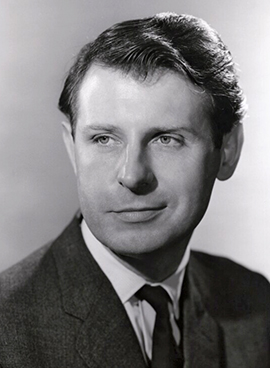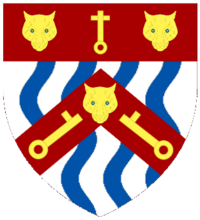Richard Marsh, Baron Marsh facts for kids
Quick facts for kids
The Lord Marsh
|
|
|---|---|

Marsh in 1965
|
|
| Minister of Transport | |
| In office 6 April 1968 – 6 October 1969 |
|
| Prime Minister | Harold Wilson |
| Preceded by | Barbara Castle |
| Succeeded by | Fred Mulley |
| Member of Parliament for Greenwich |
|
| In office 8 October 1959 – 7 July 1971 |
|
| Preceded by | Joseph Reeves |
| Succeeded by | Guy Barnett |
| Personal details | |
| Born |
Richard William Marsh
14 March 1928 London, England |
| Died | 29 July 2011 (aged 83) London, England |
| Political party | Crossbencher |
| Other political affiliations |
Labour (before 1978) |
| Alma mater | Ruskin College |
| Profession | Businessman |
Richard William Marsh, Baron Marsh, PC (born March 14, 1928 – died July 29, 2011) was an important British politician and a leader in the business world. He was known for working to improve safety in workplaces and for leading British Rail, the national train company.
Contents
Richard Marsh's Early Life and Education
Richard Marsh was born in London, England. His father worked in a factory that made metal parts. Later, his family moved to Swindon when his father started working for the Great Western Railway. Richard went to Jennings Street Secondary School, Woolwich Polytechnic, and Ruskin College in Oxford. Before becoming a politician, he worked for a group called the National Union of Public Employees. This group helped public workers with their jobs and rights.
Becoming a Member of Parliament
Richard Marsh first tried to become a Member of Parliament (MP) in 1951 but was not elected. An MP is a person chosen by voters to represent them in the House of Commons, which is part of the UK Parliament.
In 1959, he was elected as an MP for Greenwich for the Labour Party. The Labour Party is one of the main political parties in the UK.
Making Workplaces Safer
As an MP, Richard Marsh worked on an important law in 1960. This law was called the Offices, Shops and Railway Premises Act. It was designed to make offices, shops, and railway buildings safer places to work. This law was a big step towards modern safety rules, like the Health and Safety at Work Act we have today.
Working in Government Ministries
When the Labour Party came into power in 1964, Richard Marsh became a junior minister. He worked in the Ministry of Labour, which dealt with jobs and workers' rights. Later, in 1965, he moved to the new Ministry of Technology, which focused on science and new inventions.
Minister of Power
From 1966 to 1968, Richard Marsh was the Minister of Power. This meant he was in charge of the country's energy supply. In this role, he officially opened the new Hinkley Point A nuclear power station, which produced electricity using nuclear energy. He also helped pass laws to bring the steel industry under government control.
Minister of Transport
After that, from 1968 to 1969, he became the Minister of Transport. In this job, he was responsible for roads, railways, and other ways people travel. He was known for being a motorist himself, meaning he liked driving cars.
Leading British Rail
In 1971, Richard Marsh left Parliament to become the Chairman of the British Railways Board. This meant he was the head of British Rail, the company that ran all the national trains in the UK. He held this important position until 1976.
After leaving British Rail, he received a special honour and was made a Knight. He then became the chairman of the Newspaper Publishers' Association (NPA), a group for newspaper companies. He also led other businesses and was part of the TV-am company from 1983 to 1984.
Changing Political Sides
In 1978, Richard Marsh announced that he would support Margaret Thatcher and the Conservative Party. He decided to vote Conservative in the 1979 general election. This was a big change because he had been a Labour Party politician for many years.
Becoming a Lord
After the Conservatives won the election, Margaret Thatcher gave Richard Marsh another special honour. On July 15, 1981, he became a life peer with the title Baron Marsh. This meant he could sit in the House of Lords, which is the second part of the UK Parliament. In the House of Lords, he sat as a Crossbench peer, meaning he did not belong to any specific political party.
Personal Life
Richard Marsh married Evelyn Mary Andrews in 1950, and they had two sons. They later divorced in 1973. In 1975, his second wife, Caroline, sadly died in a car accident in Spain. Richard Marsh himself passed away in London in 2011 at the age of 83.
|
 | Audre Lorde |
 | John Berry Meachum |
 | Ferdinand Lee Barnett |



